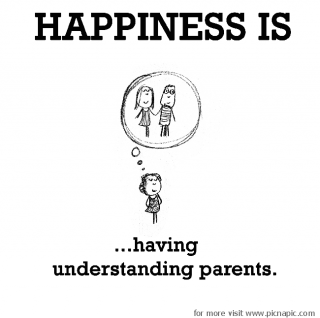Forgiveness
Forgiveness: How Much Responsibility Does the Victim Have?
Lessons on mixing causes, correlates, and consequences
Posted August 20, 2014
Inspired by Martin Seligman's ideas about positive psychology, in 1999, I taught my first college course on the science of well-being at the University at Buffalo. In the first class, I asked people to write down their definition of happiness. A question still debated by philosophers, psychologists, theologians, and sous chefs. Many of the answers by college students in my class were no different than the answers I get today....with definitions of happiness such as:
Kindness
Family
Friends
Money
Korean massages and full body scrubs by a strong man in black spandex underwear
Serenity
Life satisfaction
Being at peace with who we were, who we are, and where we are heading
Some of these answers might resonate deeply with you. Others might lead to some head scratching. One problem is that people often confuse the sources of happiness with this thing called happiness. When people are asked about what brings them happiness, the most common answer involves spending time with close friends and loved ones. You might be asking: So what is the problem with defining happiness as friends, family or any other source of happiness? Simple. We never get to understand what has the greatest impact on happiness in our lives, our children's lives, or the lives of anyone we are trying to help.

This problem is exemplified by the one of the most widely used measures of happiness: The 20-item Oxford Happiness Questionnaire. On the surface, this sounds like an amazing measure. Right in the title, the authors claim it measures happiness. Add to this the fact that Oxford is one of the world's most rigorous, intellectual institutions (they wouldn't have even looked at my 92 high school average and college application essay on being a chicken delivery boy in a dangerous neighborhood [yes, this is what I wrote about]). The problem is that when you look at the actual items, you will notice that over half of the 20 items measure something other than happiness. Some items measure sense of humor ("I find most things amusing"), which is not a requirement to be happy. Some items measure physical health ("I don't feel particularly healthy," which is reversed), which may increase the likelihood of happiness or be a benefit of a happy life but by no means, do you need a clean bill of health to describe yourself as happy. Think about this, does the notion of happiness exclude people diagnosed with cancer and HIV?
The same issue about mixing the causes and consequences with the thing of interest happens when discussions turn to forgiveness. My recent blog post on forgiveness led to interesting, critical comments. In one online debate, I was told that I do not understand forgiveness and "it is dishonest to appropriate the word forgiveness" for what I discuss. I rely on the definition by Dr. Michael McCullough, one of the world's leading thinkers on the topic who literally wrote the book of forgiveness (with two co-authors). Based on his research, forgiveness is
The set of motivational changes whereby one becomes (a) decreasingly
motivated to retaliate against an offending relationship partner; (b)
decreasingly motivated to maintain estrangement from the offender;
and (c) increasingly motivated by conciliation and goodwill for the
offender, despite the offender’s hurtful actions.
A faculty member from another university argued that this is only half of forgiveness and that "the truth is that forgiveness, in its fullness, is a transaction whereby a relationship is established or restored to its proper state... In order for forgiveness to be completed, it is necessary for the offender to acknowledge and repudiate his or her offense." I thought about this and wondered, outside of word games, what are the real-world implications of this definition of forgiveness.
Ideally, yes. It would be wonderful if by forgiving someone our relationships return to a healthy state. But certainly we must be able to forgive without the need for contrition or reconciliation by the other party? And of course, we can only control our behavior. We cannot control the behavior of other people.
What if you are not in a relationship with someone? Can a sexual assault survivor forgive a stranger that raped them? think about all of the adults who were abused or neglected by their parents as a child. Are they unable to forgive their parents after they die? Let's go up a level and think about geopolitical conflicts. Can a person in the current Israel-Hamas conflict forgive the transgressor, even if there is no personal relationship to restore? even if the transgressor fails to apologize or take responsibility? An exemplar of forgiveness is the Dalai Lama and his attitude toward those in China who invaded Tibet, forcing him into exile. His forgiveness, without any need for an apology or act of reconciliation, enabled him to be less imprisoned by his anger, facilitating a push for peaceful negotiations.
Let us appreciate the varieties of forgiveness. Hail equifinality - or the multiple paths that can lead to forgiveness. Let us resist the temptation to use the word forgiveness for only the most extreme situations, where everything works out and both sides have reconciled and produced a new, healthy relationship. If forgiveness requires the restoration of a relationship and the offender is disinterested, we must acknowledge that the victim still has the psychological tools to forgive. To think otherwise is to fail to empower the victim, fail to give them a sense of control for their own mental life, and fail to allow them to psychologically move forward in their lives unless the other person's behavior complies. We do not control how other people respond to us.
When we are unable to distinguish the causes and consequences of happiness, forgiveness, creativity, and other abstract, beautiful elements of the human condition, we are unable to understand them. If we are unable to understand them, we cannot cultivate them.
Dr. Todd B. Kashdan is a public speaker, psychologist, and professor of psychology and senior scientist at the Center for the Advancement of Well-Being at George Mason University. His new book, The upside of your dark side: Why being your whole self - not just your “good” self - drives success and fulfillment is available from Amazon , Barnes & Noble , Booksamillion , Powell's or Indie Bound. If you're interested in speaking engagements or workshops, go to: toddkashdan.com




